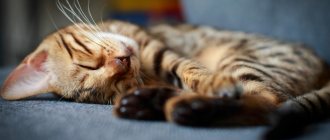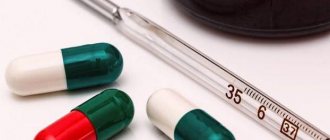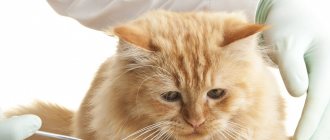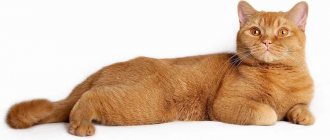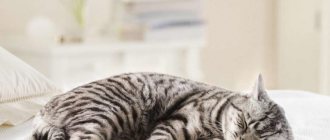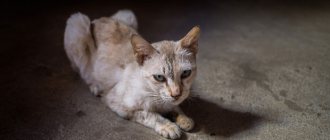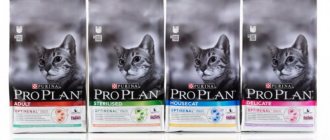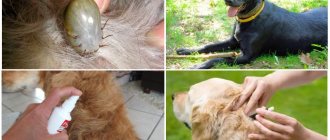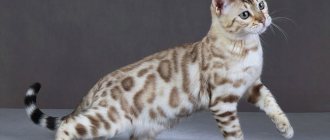7477Pavel
Calcium gluconate is an important micronutrient for both humans and pets. First of all, it is necessary for the formation of bone tissue; bones are a storehouse of calcium. If a cat is experiencing calcium deficiency in the body, then it is necessary to administer calcium gluconate to cats.
Due to a lack or imbalance of calcium in an animal’s body, big problems arise with its health, leading to hundreds of diseases. A cat or cat must have a certain supply of calcium at all stages of its development.
© shutterstock
Recommended calcium content in dog food
So, the European Federation of Pet Food Manufacturers gives manufacturers the following recommendations on the dosage of calcium in ready-made complete feeds, calculated per 100 g of feed dry matter:
- In food for adult dogs - minimum 0.50–0.58 g, maximum 2.5 g;
- In food for puppies in the early period of development (under 14 weeks), pregnant and lactating bitches - minimum 1 g, maximum 1.6 g;
In puppy food during the later period of development (from 14 weeks and older), the dosage of calcium should differ depending on the size of the breed:
- for puppies of breeds whose adult weight is less than 15 kg, during the entire late growth phase (from 14 weeks) - at least 1 g;
- for puppies of breeds whose adult weight is more than 15 kg, continue this dosage until they reach the age of 6 months, and only after this point reduce the calcium level to 0.8% in the dry matter of the food.
For growing puppies, a calcium level of 0.8 g per 100 g of food dry matter has been determined to be medium optimal. However, according to the same GOST, calcium in dog food of certain breeds, especially in the rapid growth phase (especially in those breeds with low energy needs), should not be higher than the specified value (0.8 per 100 g) , this is the maximum permissible level for them.
During the later growth period, the calcium content in the feed should be up to 1.8% of the dry matter of the feed. This applies to all breeds of dogs, including giant ones, except Great Danes. This breed is considered the most sensitive to calcium levels, so it is advisable to feed these adolescents a diet with a maximum calcium level of 1.6 g per 100 g of dry matter of food.
Instructions for use
“Calcium gluconate” is prescribed by a veterinarian, given orally, intramuscularly, intravenously. Injections are usually used when the amount of microelement in the blood is too low, as well as during childbirth. In other cases, tablets are prescribed. The oral dosage for a cat is 20 mg 2-3 times a day. Injections are administered from 1 to 5 ml. The dose is calculated depending on the age and weight of the animal.
A baby can eat no more than 4 tablets of calcium citrate per day.
“Calcium Citrate” does not contain phosphorus and is available in tablets and powder. Suitable for young growing organisms, small breeds, old pets. Produced by a pharmaceutical company. There is both a separate calcium preparation and a complex with cholecalciferol. You need to give your kitten vitamins 3-4 tablets a day. In powder form, the drug is added to the feed in a dose of ½-1 teaspoon 3 times a day.
“Calcid” contains not only calcium, but also vitamins and microelements. Suitable for people and animals. The dosage is prescribed by the doctor. Usually 1 tablet 1-3 times a day 30 minutes before feeding, depending on age. This dietary supplement is produced in Russia. 8 in 1 Excel Calcium is produced in Germany and contains a full range of all necessary microelements and vitamins. Can be given to cats and dogs. According to the instructions for use, kittens and adult animals should be given ½-1 tablet once a day.
Cat food with calcium
Any food of at least premium class contains the required proportion of calcium and phosphorus. Calcium may not be present in the most easily digestible form, but it is there nonetheless. If your cat eats a high-quality food (preferably super-premium or holistic) and has good digestion, there is no need to worry about a lack of calcium.
Just choose food according to age. Since calcium is especially necessary for kittens (they develop their skeletal system), manufacturers have specially developed food for babies with a high content of this mineral. Therefore, it is worth looking at special food for kittens with calcium, and not immediately putting them on an adult product.
Calcium levels in a cat's diet
What to feed your cat using natural food - Food and diet
Effective tick repellents for dogs – features and choice
Calcium for cats and cats - Danger of overdose!
Important vitamins for cats – we save them from future problems
Vitamins for natural fed dogs
Calcium for dogs - Vitamins for calcium deficiency in large breed dogs and puppies
How to properly put drops into a dog's eyes
Home care for dog joints
What is hypoallergenic dog food and how to choose it
How to choose horns for a dog
Horns for dogs or 3 in 1
Vitamins with calcium for dogs
Diarrhea in a dog - What to do and how to treat it at home
Choosing premium cat food, what to look for
Calcium supplements for cats
Eclampsia debilitates a cat, and even after complete recovery, its body needs careful treatment and support. Your pet needs a balanced diet; it should contain dairy products every day (ideally, if they make up a third of the total daily food).
It would be advisable to take vitamin and mineral supplements with calcium, which can be selected by a veterinarian. After recovery, you need to treat the animal kindly, do not tease it or wake it up if it is sleeping. It is advisable to completely transfer kittens to artificial feeding so that the cat does not develop calcium deficiency again.
Just choose food according to age. Since calcium is especially necessary for kittens (they develop their skeletal system), manufacturers have specially developed food for babies with a high content of this mineral. Therefore, it is worth looking at special food for kittens with calcium, and not immediately putting them on an adult product.
https://www.youtube.com/watch?v=https:tzGZFjfsaJg
Below we will talk about calcium supplements, which can be bought in human or veterinary pharmacies, as well as in pet stores. Calcium for cats is sold separately in tablets, as well as calcium as part of vitamin and mineral complexes.
To choose the right supplement for your cat, there are a few factors to consider.
- If for some reason the cat is on a diet using boiled meat rather than raw meat, then its diet is depleted not only of calcium, but also of other microelements, many of which are destroyed during heat treatment. Therefore, you can choose a supplement consisting not only of calcium, but entire vitamin and mineral complexes, which contain all the beneficial substances in the required balance. Just keep in mind that hypervitaminosis is much worse than hypovitaminosis: you cannot give such supplements every day throughout your life, and even by eye - strictly follow the instructions or prescription of the veterinarian.
- If the cat is fed raw meat without a bone component, then only calcium needs to be added to the food; other microelements and vitamins may be required only when indicated or during molting. Choose supplements that contain calcium and do not include phosphorus.
- When choosing a calcium supplement, you should also take into account the cat’s individual reaction. Some calcium supplements may not be suitable (this will manifest itself, for example, in an allergic reaction).
- If the animal is on fortified factory feed, supplements are contraindicated.
Calcium supplements are created from various natural products: shells, chitinous shells of crustaceans, bone meal, corals, oyster shells, limestone, etc. And not all of them are equally useful. Let's look at specific calcium compounds that are available for purchase.
Vitamins with calcium for cats may be needed in the following cases.
- The cat's food is depleted in vitamins and minerals (for example, when eating inferior food or boiled food).
- For some reason (for example, internal pathologies), the animal has a problem with the absorption of microelements - then during treatment the body needs to be supported with vitamins and minerals.
- During a period of active growth, stress and increased stress on the body.
- For some diseases of the musculoskeletal system and other pathologies.
- Veterinarians advise animals on a natural diet to take 2 courses per year. Despite the fact that a proper natural diet does not need to be supplemented with vitamins and minerals, owners often fail to balance it 100%, which is why pets require periodic support with supplements.
Among the good vitamin-mineral complexes that include calcium for cats are the following: Beaphar (Netherlands), Canina (Germany), 8in1 from Brewers (USA), Nutri Vet (USA), Gimpet (Germany), Anivital ( Germany), Bayer (Germany), Dreamies (USA).
These complexes are more expensive than others, but cheap vitamin and mineral preparations are absorbed much worse, so it’s not worth saving.
The best vitamins for cat fur
Vitamins for cat fur in drops Hokamix Skin&Shine
I can say that this remedy is often recommended by veterinarians. This is a product with an oily consistency, obtained from high-quality plant ingredients. Vitamins are characterized by a high content of essential fatty acids - Omega-6, Omega-3 .
The good news is that it contains essential amino acids, which eliminates dry skin, various inflammations, prevents age-related changes in the skin, restores the shine of the coat and removes fragility. Plus, it contains vitamins and magnesium.
The results of taking vitamins are visible within a few days. This product is recommended for use to enhance coat color, more quickly restore condition after childbirth, and reduce the shedding period. Drops are added directly to cat or kitten food. Duration of administration: 6-8 weeks, once every six months, 2 ml per day. Price – from 1.4 tr. (bottle with dispenser 250 g).
- gives quick results for problems with hair and skin;
- does not contain preservatives or flavor enhancers;
- fast and effective results;
- perfectly restores the elasticity of the coat and returns a healthy shine.
Vitamins for the fur of cats and kittens in Beaphar Laveta Super solution
The modern product is specially designed for adult and elderly cats. The release form is a solution with a sweetish odor.
It is mixed with water in any ratio and gives the animal vitamins E, B, calcium, taurine, nicotinamide, biotin. , reproductive function in cats and numerous biochemical reactions are normalized. An amino acid such as taurine prevents the development of cardiomyopathy and retinal degeneration.
When calculating the dosage, the body weight of the animal is taken into account. On average, from 2 to 35 drops are added to water. Vitamins will work great if given daily, especially during periods of shedding or stress. Drops can be added to drinking water or food. The cost of a 50 ml bottle is from 480 rubles.
- does not give side effects;
- no contraindications;
- compatibility with other supplements and medications;
- significantly improves the condition of the skin and coat;
- eliminates peeling and itching;
- the animal will easily eat the drug with food.
There are no cons.
Vitamins for cat fur in tablets Beaphar Brewers Yeast with Garlic
An excellent complex of vitamins for pets. Brewer's yeast works well here , being a complete source of B-group vitamins.
They are beneficial for the entire animal’s body, increase defenses, improve appetite, hematopoiesis, digestion, and the condition of the coat and skin. There is such a useful additive as garlic . This is a natural remedy that fights helminths. Let's not lose sight of zinc and the most beneficial fatty acids, microelements, and amino acids.
Vitamins are given to animals daily. A dog needs one vitamin for every 4.5 kg of weight. If the pet is expecting kittens or feeding offspring, the dosage is doubled. The drug can be added to food or given separately; cats eat the tablets as a treat. The price of a bottle of 155 pieces is 445 rubles.
- suitable for older animals;
- balanced composition;
- really supports the health of pets, improves the condition of the skin and coat;
- fast efficiency.
Deficiency and consequences
Due to a lack of calcium, hypocalcemia develops. This disease occurs when the level of calcium in the blood is extremely low, which poses a threat to the life of the animal. Cats and cats experience muscle tremors, convulsive twitching, breathing and heart problems, and other disastrous consequences.
Osteodystrophy develops due to calcium deficiency; a disease in which bones do not form properly. Also, animals can suffer from rickets and other ailments for this very reason. In an animal with renal failure, phosphates accumulate intensively in the blood. Excess phosphates make his bones brittle. In a normal, healthy state, the cat and cat do not feel the excess phosphate, since it is filtered by the kidneys and excreted in the urine. But if a cat suffers from kidney disease, the phosphate content in the blood increases, which leads to a decrease in calcium content.
shutterstock
It is extremely necessary to administer Calcium Gluconate to a cat during childbirth if she has given birth to her first child or 2-3 kittens, but not all of them, and her efforts have become weak and infrequent, labor activity has sharply declined or stopped completely. First aid will be intramuscular or even intravenous administration of the solution.
Eclampsia or milk fever is an extremely terrible disease that occurs from a sharp decrease in calcium in the blood of a cat nursing offspring. Without urgent medical attention, this disease ends in the death of the animal due to brain damage and depression of the respiratory center. The disease is characterized by calcium loss due to milk production. Signs of the disease are:
- severe irritability, increased agitation of the cat;
- reluctance to eat and feed kittens;
- failure to recognize the brood and owner;
- inhibition of the central nervous system, apathy, lethargy;
- profuse drooling;
- wide pupils, lack of constriction even in bright light;
- impaired coordination of movements;
- increase in body temperature up to 41 degrees;
- convulsive twitching, trembling;
- muscle spasm.
In this situation, emergency treatment is prescribed for vital indications. Its goal is to increase calcium in the cat’s blood to a sufficient level. Calcium gluconate is administered intravenously, since neither intramuscular administration, nor even tablets are capable of producing the necessary fast-acting effect.
However, tablets can eliminate calcium deficiency, which a cat suffers from according to test results, so that it does not affect the quality of sperm and the fertilization process. Today, a popular drug is Miracle Calcium, which is produced from fresh vertebral bones of cattle using unique new generation biotechnologies.
Calcium gluconate
Impaired calcium absorption and autointoxication of the body due to the accumulation of postpartum secretions in the uterus lead to a disease such as eclampsia in cats. Treatment at home should be etiotropic, that is, eliminating the cause. The main drug for replenishing the deficiency of the missing microelement is calcium gluconate. After consulting a veterinarian, the medicine can be administered intramuscularly at home.
The dose of calcium gluconate should be determined by the doctor, but on average, to relieve an attack of eclampsia, intramuscular administration of 1 ml of a 10% solution is recommended at intervals of 40 minutes until the characteristic symptoms cease.
To eliminate swelling, the animal can additionally be prescribed “Prednisolone,” and to eliminate muscle spasms, “Drotaverine” (“No-Shpa”). After acute symptoms are relieved, the cat is usually administered intramuscular calcium gluconate twice - morning and evening - 1 ml each for 7-10 days.
The most famous drug in our country is calcium gluconate. It doesn't fit either, because... is absorbed by only 3%, that is, even worse than calcium carbonate.
Which calcium is better?
This question is perhaps identical in importance to the question: “what calcium is absorbed.” The best types of calcium are chelated. These are the chelated types of calcium found in nature. In one of our articles, I already mentioned this species and gave it a definition
In pharmacies (and pharmacies) there is an abundance of calcium. But not all of them are useful. Many of them not only do not cure, but also cripple. Here are just a few types of calcium that we can see today:
— Calcium phosphide. This is a white free-flowing powder. It is not enough to build bones and participate in the biochemical processes of the body.
- Calcium chloride . This is poison. Very toxic calcium. It destroys mucous membranes (human, cat, it doesn’t matter). It also disrupts metabolic processes in the body.
- Calcium gluconate. Similar in properties to calcium chloride.
- Calcium carbonate. (chalk, animal bones, shells, eggshells, etc.). Logically speaking, these substances are not meant to be eaten. It’s hard to imagine that a person would prepare a plate of fresh bones and a bowl of eggshells for lunch and eat it. Is not it? The same is true for animals. In terms of biochemical properties, the calcium carbonate molecule is very large. It will knock good calcium out of the body.
— Calcium glycerophosphate is also very harmful. It is noteworthy that in the well-known calcium preparation Calcium D3 (Nycomed), during laboratory studies, salts of lead, cadmium, and strontium were discovered, which are radioactive and very harmful. Also, if you look at the composition, you will see that it contains calcium carbonate.
How to understand what vitamin a cat lacks
As a rule, with natural feeding, it is recommended to give the cat vitamin and mineral complexes twice a year to prevent vitamin deficiency. If you do not do this in a timely manner, external manifestations will not take long to appear.
Lack of vitamins affects the appearance and behavior of the cat:
- continuous shedding, dull coat, unkempt appearance;
- decreased appetite;
- depressed state, lack of interest in life, activity, slow reaction.
It is possible to determine which vitamins are missing using laboratory blood tests, although experienced veterinarians often make do with a simple survey of the owner. Diet data gives an accurate picture of what vitamins your cat urgently needs.
Vitamins for kittens are prescribed regardless of the presence or absence of external manifestations of their deficiency.
Vitamins for kittens
At the time of active growth and formation of the body, vitamins with calcium are given to kittens.
Supplements are useful when changing teeth, molting, switching from milk to regular feeding, and during stress.
after travel, transition to a new family, vaccination, deworming, castration. The best vitamins for kittens, according to reviews, are:
- BEAPHAR KITTY'S Protein and Junior;
- Baby pastes, Baby-tabs;
- Cat Mineral Tabs;
- POLIDEX Complex Gelabon plus Glucozamine;
- domestic Biorhythm and Doctor ZOO.
It is better to give the cubs natural vitamins - synthetic ones may not be fully absorbed. Supplements should include taurine for visual acuity, L-carnitine for proper development and growth, and colostrum. For British cats, calcium is important for the formation of large bones; for Scottish Folds, a smaller amount is important, otherwise the ears may stand upright.
Beaphar Kitty's Junior
Beaphar Kitty's Junior fortified treat is intended for kittens over 6 weeks of age. It is an ideal addition to your daily diet:
| Compound | Biotin, milk, fish, fish products, B vitamins, nicotinamide, cod, sodium, potassium, calcium, phosphorus |
| Indications for use | Developmental disorders, problems with fur, skin, claws |
| Method of administration | Inside |
| Dosage | 1-4 tablets per 1 kg of body weight |
| Duration of treatment | 1 month |
| Advantages | Ensures healthy skin, improves gland function, stimulates collagen production, intensely nourishes hair follicles, stimulates the formation of a strong skeleton, straight healthy teeth, and gives shine to the coat. |
| Flaws | Difficulties with mixing into food |
GimPet Baby Paste Calcium
Multivitamin paste for kittens GimPet Baby Paste Calcium increases the body's natural defenses. Its features:
| Compound | Calcium, taurine, derivative, vitamins A, D, E, groups B, C, K, nicotinic and pantothenic acids, meat products |
| Indications for use | Lack of vitamins, calcium, decreased visual acuity |
| Method of administration | Orally with food |
| Dosage | A strip of paste 5-6 cm per day (room temperature) |
| Duration of treatment | 30 days |
| Advantages | Helps build a healthy skeleton, teeth growth, visual acuity, improve heart function, has a beneficial effect on intestinal flora, can be used by lactating cats |
| Flaws | Only from 6 weeks |
The best vitamins for healthy skin and coat of cats
The condition of the skin and coat are the first indicators of a pet’s overall health. But sometimes they don’t look good due to an unbalanced diet. Special vitamins can shorten the shedding period, add shine to a cat's coat and reduce tangling, which is especially important for long-haired breeds.
AniVital Fel >
Vitamins from the famous German brand are suitable not only for improving the appearance of your pet, but also for combating allergic dermatitis and other diseases of the skin and coat. The recommended dosage for a pet weighing 5 kg is 3-4 tablets per day. AniVital is sold in dark plastic packages with a hermetically sealed lid of 140 and 260 tablets. The duration of treatment is usually 4-6 weeks.
The composition of the drug is very rich and gives a complex effect. Amino acid zinc chelate heals skin cracks. Biotin accelerates the synthesis of keratin - the main component of the epithelium, wool and claws. It reduces dryness, brittleness and hair loss, and helps treat dandruff and infections. Yeast is known for its high content of B vitamins and beneficial microelements.
In addition, FeliDerm contains fish oil as a source of fatty acids for shiny coat, as well as meat, poultry liver and herring to give vitamins a pleasant taste and aroma.
- rich natural composition;
- taste and smell attractive to cats;
- low consumption;
- hypoallergenic;
- convenient packing and packing.
- for 140 tablets you will have to pay at least 1.5 thousand.
AniVital FeliDerm quickly eliminates skin irritation and itching - the main symptoms of allergic reactions.
source
How to give vitamins to a cat correctly
The complexes differ not only in the form of release, but also in the concentration of useful substances in the composition. Therefore, they need to be given in different ways. The prescription, of course, must be made by a veterinarian, who will determine the required concentration, composition and course of administration.
Conditions that require emergency intervention require the presence of a therapeutic dose of beneficial substances. This means that they can be used in courses for a strict purpose. For example, during rehabilitation after infectious diseases, injuries and fractures, dermatitis.
It is possible that vitamins will be prescribed during hospital treatment. Or for preventive purposes - with planned annual courses. Usually - in spring and autumn, during the period of seasonal decrease in immunity caused by molting.
Treats recommended for daily use contain a minimum concentration of vitamins, which is determined by the daily requirement. This is the best remedy for the prevention of vitamin deficiencies, however, their dosage does not have a therapeutic effect and if the situation is advanced, then you need to buy more concentrated complexes.
It doesn’t matter whether you use a daily treat or a dietary supplement that includes a course of treatment, you need to carefully monitor your cat’s reaction. No one is immune from allergies or specific reactions.
Calcium for cats and cats - Danger of overdose!
Calcium is an essential supplement in a cat's diet. It is important for furry pets, as well as for their owners. Therefore, calcium levels in the body are monitored regularly.
Calcium is found in eggs, meat, and dairy products. But the content of this valuable ingredient in them is so low that almost every member of the cat family requires additional “replenishment” of calcium - there is a need to purchase supplements. If a cat lacks calcium, it can be seen immediately. Dull fur, weak teeth and bones... It is difficult to determine the exact dosage and duration of the treatment course on your own; a veterinarian will simplify the task - after examination and passing some tests.
Eggshell: calcium carbonate
Of the natural sources of calcium, eggshells immediately come to mind. Indeed, it consists of 36% calcium. But there is one subtlety: the shell contains calcium carbonate, a compound that is only 20% absorbed. Thus, in order to maintain a balance of calcium and phosphorus of 1.3:1 for adult cats and 1.4:1 for kittens, a lot of shells are needed.
To calculate how many shells a cat needs per day, the daily meat consumption is taken into account. Let's say a cat eats 200 grams of veal per day, which corresponds to about 500 mg of phosphorus and about 50 mg of calcium. The amount of phosphorus depends on the type of meat (see table below). Accordingly, such a daily dose should contain at least 450 mg of calcium. To collect this amount, you need to take 1-1.5 grams of shell, which corresponds to 1 quail egg shell, because... its weight is approximately 1.5 grams. But you need to remember that calcium carbonate will not be absorbed entirely, but at best only 20%. That is, this is already about 5-7 grams per 200 grams of food per day. This mass corresponds to approximately 3-4 quail shells or 1-1.5 chicken shells.
But the fact that you add shells to food does not guarantee that calcium will be absorbed by at least 20%, because the shell still needs to be crushed into powder: otherwise, in many cats it comes out in pieces along with the feces (the author of the article saw this with his own eyes).
To increase the amount of calcium absorbed, you cannot pour whole spoonfuls of shells into a plate, because calcium carbonate in large quantities causes side effects: it lowers the acidity of the stomach below normal, causes flatulence, constipation, allergic reactions, and promotes the formation of kidney stones. In addition, by receiving calcium in excess, the body further reduces its absorption.
Thus, in order to meet your cat’s calcium needs every day throughout his life with the help of shells, you need to work hard. First, the shells need to be crushed so that the cat eats them and does not leave them, and so that the shells are digested. Secondly, you need to clearly count the amount so as not to overdo it, but also not to give too little. Thirdly, not every cat’s body can absorb at least 20% of calcium carbonate. Therefore, it is advisable to combine the shell with other sources of this mineral or abandon it altogether.
Sources of calcium for cats
If pets are naturally fed, it is important for the owner to consider where they will get calcium from. As for meat, this is a controversial source of calcium, because most of the phosphorus enters the body with it - but the cat receives very little calcium from meat. It is important to consider the ratio of phosphorus and calcium in the diet. The norm for adults is 1:1.2 or 1:1 . For kittens – 1:1.4 . To the question “ can cats have calcium? ” there is only one answer – it is necessary , and regularly . If, when fed with balanced food, the cat receives its daily requirement - calcium in cat food is necessarily taken into account, then with a natural type of nutrition, all responsibility falls on the shoulders of the owner - it is he who chooses the source of calcium for the pet.
How and when to give your cat calcium
The daily dose of calcium is calculated based on the amount of phosphorus consumed with meat. To do this, you need to know how many grams and what kind of meat the cat eats. Calcium for adult cats is calculated based on a ratio of 1.2:1 or at least 1:1. Calcium for kittens is calculated based on a ratio of 1.4:1. Typically, 60-100 mg of calcium per 1 kg of animal weight is recommended, unless otherwise specified by a veterinarian.
Calcium is supplied with food. At the same time, it is better to give the daily dose of calcium not at once, but in 2-3 doses, because Calcium is well absorbed in small portions. But if you give all the calcium in 1-2 doses, then do it in the afternoon, ideally before bed. This is due to the metabolic characteristics of cats.
Some nutritionists recommend giving different amounts of calcium every day: on one day - more than needed, on another - less, and on the third, “forget” altogether. In this way, they believe, we reproduce the natural diet of a wild cat, which does not consume the same amount of food day after day. But then the amount of meat should not be equal, because the calcium-phosphorus combination in a cat’s natural food is always maintained: the cat either eats the caught carcass with bones and meat, or does not eat it, or eats one, or 5, depending on how much game there is will catch. Thus, the ratio of calcium and phosphorus is always maintained. If you give different amounts of food, then on some days the cat may overeat, and on others it may feel hungry. We consider it inappropriate to arrange a food “swing”.
But still, with periodic insufficient calcium intake, nothing bad will happen. If an adult cat is constantly on a calcium-depleted diet, the critical period is considered to be 2 months: if all this time the cat received almost no calcium, consequences associated with the development of various pathologies occur.
With a constant excess intake of calcium, the cat’s body reduces absorption, i.e., generously giving this element can cause the opposite effect.
Calcium for cats: where to get it and how to give it?
Owners of cats and dogs that are fed a natural diet definitely need to think about which source of calcium to choose for their pet. The problem is that mainly phosphorus enters the body with meat: it contains minimal amounts of calcium. At the same time, the balance of calcium and phosphorus in cats’ food should be 1.3:1 or at least 1:1, for kittens – 1.4:1. If you ignore this rule, you can create conditions for the development of serious diseases, such as secondary hyperparathyroidism and others. Therefore, calcium should be supplied with food regularly. Where can I get it?
Contraindications and side effects
Do not give to cats if they have an excess of microelement in the body.
If your pet is allergic, then vitamin complexes must be selected with caution, because they quite often cause various reactions. It is not advisable to give medicine to cats if they have kidney disease, hyperparathyroidism and some malignant tumors.
It is necessary to choose a complex for kittens with a veterinarian.
Side effects include allergic reactions, nausea, vomiting, and diarrhea. The cat may have a stomach ache and flatulence. Sometimes disorders of the nervous system and psyche appear. If the dosage is too high, hypercalcemia may develop. If your pet experiences any unwanted effects, you should notify your veterinarian. Most likely, the medicine will have to be discontinued.
How is calcium best absorbed?
Calcium is undoubtedly an extremely important mineral, because it is one of the key components of bone tissue. But its metabolism in the body is closely related to the amount of phosphorus that the animal receives with food, as well as with vitamins D and C. The first is traditionally called “antirachitic”, the second helps to optimize the structure of bone tissue, by the way, dogs are able to synthesize on your own.
We think that from the above it is clear that maintaining a balance of minerals and vitamins in the diet in accordance with the age and special needs of the pet is very important for any dog or cat. Excess calcium is just as harmful as its lack, and in certain periods of life, especially for large puppies, it can have an extremely bad effect on their health
We should also not forget one more point: in order for the calcium received per os and absorbed in the gastrointestinal tract to be included in the bone tissue, each pet needs a sufficient level of physical activity
Excess calcium is just as harmful as its lack, and at certain periods of life, especially for large puppies, it can have an extremely bad effect on their health. We should also not forget one more point: in order for the calcium received per os and absorbed in the gastrointestinal tract to be included in the bone tissue, each pet needs a sufficient level of physical activity.
The key word here is moderation, that is, measured movement at variable speeds during walks is important, and not constantly lying on the couch or, conversely, heavy physical activity
Calcium therapy
When contractions stop, the dosage of calcium Gluconate for cats is 1 ml of a 10% solution, which is injected deeper intramuscularly. While labor continues, up to 3 injections every couple of hours are sufficient. Inject Calcium Gluconate or Cal-Pho-Sol. It is imperative to take into account the fact that a large dose causes cardiac shortness of breath. Therefore, it is advisable to have a veterinarian monitor this process. In addition, he can immediately prescribe and administer vitamin B-complex, which is also necessary for a cat in labor. Calcium gluconate is extremely effective in cases of such problematic labor.
shutterstock
In order for cats and cats to be healthy, they need strong bones. Therefore, you need to constantly do tests to determine the calcium level of your cat. They are made today in every veterinary clinic.
It is especially important to maintain its level during pregnancy and lactation of the cat. Cat and cat should have normal calcium levels when conceiving kittens
To maintain the required level of calcium in the blood of a pet, owners need to constantly monitor its proper diet. In addition to tablets that increase calcium gluconate in the body, you need to eat foods that contain calcium. They fight calcium deficiency no worse than expensive tablets.
Cats suffering from calcium deficiency in the body should eat high-quality food, along with chicken and beef, liver and bone meat, fish and seafood, buckwheat and rice, drink whole milk, etc. In general, cats and cats should receive adequate nutrition. Cats and cats will always appreciate high-quality and tasty food with their playful and affectionate behavior towards their owners.
Previous Question and answer Doxycycline for cats - instructions for use of the drug Next Question and answer Gentamicin for cats - instructions for use, dosage
Vitamins to boost immunity
Vitamin-mineral complex for cats' immunity Beaphar Kitty's + Cheese
These vitamins are made in the shape of mice. To enhance their nutritional appeal, they feature a cheese flavor. There are 180 pieces in a package. Price – from 390 rubles .
The composition contains all the trace elements, vitamins, and minerals that an animal needs every day. Among the ingredients I will note yeast, milk and dairy products, meat, fish, seeds. The animal can be given up to 14 pieces per day. The dosage is calculated as follows: per 1 kg – 4 tablets.
The complex works to increase immunity , which will be important after illness, surgery, during periods of stress, etc.
- multivitamins as a treat;
- yeast, calcium in the composition;
- a complete set of vitamins necessary for cats;
- quickly strengthens the pet's health and immunity;
- Suitable for all breeds over 6 weeks old.
No cons, great product.
Vitamins for immunity with yeast Beaphar Kitty's + Protein
These vitamins from the famous cat brand are made in the shape of fish. The package contains 75 tablets, the cost starts from 250 rubles.
The product can be considered very useful and very tasty. The nutritional appeal is due to the taste of fish, and this is not an artificial flavor, but 4% cod included in the composition.
The main component is protein. It works to increase the body's defenses and strengthens the general condition of the pet. In addition, the composition includes yeast, minerals, meat, fish, water. The optimal dosage is 1-4 pieces per day.
- cats eat these vitamins without problems;
- tasty and healthy treat;
- strengthens the body's defenses;
- improves the condition of coat and skin;
- the animal becomes more active and cheerful.
Vitamins and minerals for immunity Beaphar Kitty's Taurine + Biotin
This is a comprehensive product with an innovative formula. It is presented in the form of delicacies: mice with cheese, fish with protein, hearts with biotin. Active components are useful and absent in regular food: taurine, biotin, protein.
This works to maintain healthy coat and skin, and ensures proper cardiac activity. Taurine is good for the brain, promotes rapid healing of wounds, and maintains good vision.
In addition, the composition includes vitamins B, E, C and microelements. The price of a package of 180 tablets is 400 rubles.
- the cat perceives vitamins as a treat;
- the product is really effective;
- promotes rapid recovery after illness;
- improves the condition of coat and skin;
- strengthens the heart;
- supports brain function, which is important for older cats.
First aid for an animal
Before the veterinarian arrives, the cat needs emergency care. This will increase the chances of recovery and a favorable outcome. Since eclampsia in cats can develop within a few hours, you need to act quickly. Here's how you can help at home:
- temporarily isolate the sick animal from the kittens;
- provide complete rest for the cat;
- in the room where the pet is located there should be dim light and fresh air;
- if your body temperature is elevated, it can be lowered with cool, damp towels or an ice pack wrapped in a cloth;
- In case of seizures, the animal must be covered with pillows or blankets so that it does not hit or injure itself during an attack.
The cubs need to be provided with artificial nutrition, since eclampsia of a nursing cat is a contraindication to natural feeding. Kittens should be kept in a separate room until their mother is fully recovered, so that she does not accidentally harm them.
The most characteristic clinical signs
As a rule, the “heroes of the occasion,” that is, the newborn kittens themselves, do not suffer from eclampsia. Their mother’s body (for the time being) “gives” the babies everything they need. So symptoms of calcium deficiency appear no earlier than 40 days after birth.
- The cat becomes apathetic and reacts poorly to any type of irritant.
- Restlessness, nervousness of the animal.
- Shortness of breath, hoarse and painful meowing.
- Clumsy walking, “stiff” gait.
- Convulsions, tetanus. The cat’s body becomes “wooden”; it lies with all its limbs stretched out in one line. These signs are characteristic of a severe course of the disease; they develop 8-12 hours after the onset of pathology.
- High body temperature, constant or intermittent fever.
- Fast, heavy breathing.
- Dilated pupils. Moreover, this reaction persists even when light is directed into the eyes.
We suggest you read: Siamese cats and children: how to help them get along
Calcium supplements for kittens
If prescribed by a doctor, your little furry can be given Calcium gluconate.
It must be remembered that ready-made special food and natural food contain a certain amount of microelements. Therefore, the drug should be selected by a doctor, taking into account dietary habits. Most often, complex vitamin preparations are used in tablets, which also include microelements - calcium, iron, magnesium, potassium and others. Release forms: tablets, ampoules, bottles, powder.
The most commonly used medications for small cats:
- "Calcium gluconate";
- "Calcium Citrate";
- "Calcid";
- Vitamall Calcium;
- Trixie Calcium;
- 8 in1 Excel Calcium.
Calcium for pets
Calcium gluconate is very important and is needed by both people and animals. Calcium, which forms the skeleton, thereby protecting internal organs, maintaining weight and correct posture, is the driving force of life. Calcium gluconate is involved in such vital processes as:
- growth and strengthening of bones and teeth;
- cardiac activity;
- metabolism;
- strengthening the nervous system;
- fertilization, pregnancy, childbirth;
- hemorrhage.
The level of calcium in the blood is controlled by the parathyroid glands. When levels are low, these glands begin to produce and release parathyroid hormones into the blood. They, in turn, begin to pull calcium from the bones. Why is calcium gluconate considered a “treasure” of bones? To quickly get calcium into the blood, you should inject your cat with calcium gluconate. The parathyroid glands then slow down and stop producing parathyroid hormones. Finally, this microelement again enters its storage.
Manganese.
Manganese is important for the proper absorption of calcium, phosphorus, sodium, potassium and some vitamins, such as vitamin C. It is also necessary for the formation of bones and proteins. Manganese is found in large quantities in milk and fish. A cat's manganese levels may be affected by calcium and phosphorus levels, as these two elements inhibit the absorption of manganese. Manganese deficiency in cats is very rare.
Manganese is important for the normal absorption of proteins and carbohydrates, maintaining the functions of childbirth and growth. Good sources of manganese include eggs, nuts, and leafy greens—foods that are not a cat's first choice of food. However, many feed manufacturers add manganese to their products. A cat requires 7 mg of manganese per 1 kg of food.
Manganese accumulates mainly in the liver, and to a lesser extent in the kidneys, pancreas and bones. Manganese deficiency in cats is rare and affects mainly the kidneys. Cats suffering from manganese deficiency are likely to be infertile, and may also suffer from stunted growth and bone changes.
Causes and mechanism of development of the disease
During pregnancy, natural changes occur in which calcium from the mother’s body is spent on the formation of the kittens’ skeleton in the womb. Parathyroid hormone is responsible for the absorption and entry of this element into the bones and muscles (it is produced by the parathyroid gland).
Sometimes at the end of pregnancy or after childbirth, the mentioned gland cannot be rebuilt and provide the cat’s increased needs for calcium. As a result, only milk is saturated with it, but not the animal’s body. These processes explain the mechanism of the pathology, and their study allows us to understand how eclampsia develops in cats after birth. Treatment of the disease involves rest and saturation of the body with calcium.
Bones with meat
The classic source of calcium for cats, according to the postulates of the natural nutrition system, is bones. But there are rules here. If they are not followed, you can cause the cat to have a blockage in the intestines or even perforation of the walls of the mucous membrane, followed by surgery or death. Unfortunately, even animals that are brought to the operating table in time with such a problem cannot always be saved.
In view of this reason, many owners choose a different path for themselves - not to feed bones at all, in order to reduce the risks to zero. But then you will have to take calcium from other sources. Let us say right away that cats cannot absorb calcium from products of plant origin.
Bones and meat
Meaty bones are a traditional way for cats to obtain calcium. But in this case, you must adhere to certain rules, otherwise you cannot avoid intestinal blockage or other, more serious problems.
However, everyone knows the experience of wild cats - they catch mice and birds, eating them completely - with bones, thereby replenishing the calcium level in the body. Owners feed their tailed pets selectively - mostly boneless meat. So should you give your cat bones?
Bone products are an excellent source of collagen, calcium, chondroitin, and glucosamine.
— Do not give your cat sharp bones, which can injure the intestines and lead to internal bleeding. These are the tubular bones of the wings and legs.
- Cats should not be given medium or large bones - these will get stuck in the esophagus or throat.
- Choose suitable bones with meat from the whole carcass. Alternatively, grind the selected parts in a meat grinder or break into small pieces with a hammer.
— Do not give your cat bones that have undergone heat treatment. When boiling or frying, the chemical composition of the bone changes: protein, vitamins and fat go into the broth, and calcium phosphate loses its digestibility.

